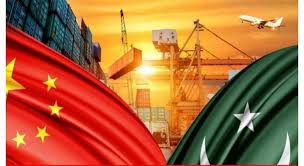BRI, CPEC to play significant role for Pakistan’s economic growth: Chinese analysts

Beijing: The significance of the Belt and Road Initiative (BRI) projects and China-Pakistan Economic Corridor (CPEC ) for Pakistan’s infrastructure development and economic growth is becoming more apparent.
Pakistan is also looking forward to more investment from China to advance its economy and secure development, Liu Zongyi, secretary general of the Research Center for China South Asia Cooperation at the Shanghai Institutes for International Studies, told the Global Times.
Deputy Prime Minister and Minister for Foreign Affairs Senator Mohammad Ishaq Dar wrapped up his visit to China on Thursday. During his stay, the two countries had held a strategic dialogue where they reiterated the ironclad friendship and agreed to deepen cooperation under the China-proposed Belt and Road Initiative as well as to update the building of the CPEC.
While stressing the importance of stable China-Pakistan relationship for regional stability, Chinese analysts also addressed the need for more effective security measures to ensure safety of Chinese personnel and companies in Pakistan, particularly amid the worrisome anti-terrorism situation in the region. Both sides underscored the importance of making joint efforts to wipe out terrorism.
Ishaq Dar paid an official visit to China from Monday to Thursday at the invitation of Wang Yi, member of the Political Bureau of the Central Committee of the Communist Party of China and Chinese Minister of Foreign Affairs.
On Wednesday, Wang and Dar co-chaired the fifth Round of China-Pakistan Foreign Ministers’ Strategic Dialogue in Beijing. During the dialogue session, the two sides exchanged views on the entire range of bilateral relations and cooperation including strategic, economic, political, defense and security, trade, investment, commerce, cultural and people-to-people domains, according to a press release from the Chinese Foreign Ministry.
Both sides reiterated that China and Pakistan are all-weather Strategic Cooperative Partners sharing an unbreakable ironclad friendship and strategic mutual trust. The healthy and robust growth of China-Pakistan relations is of immense strategic significance for regional peace, development and stability, the press release added.
Dar’s China visit marks his first official visit to a foreign country since assuming his new position.
The visit coincides with a series of high-level visits from Pakistan to China since the inauguration of Pakistan’s new government, and underscores Pakistan’s commitment to strengthening its relations with China and enhancing cooperation to bolster its domestic economy.
According to the release, China and Pakistan will work together to deepen and substantiate China’s eight major steps to support high-quality Belt and Road cooperation, and forge an “upgraded version” of the CPEC.
The two sides also agreed to accelerate progress on major connectivity projects including upgradation of ML-1, the Gwadar Port, realignment of Karakoram Highway Phase II, strengthen cooperation in agriculture, industrial parks, mining, information technology and other fields.
Creating a secure environment for better bilateral cooperation is also stressed by analysts, citing Pakistan’s security situation in recent years and the occurrence of terror attacks targeting Chinese people and projects.
During their dialogue, Wang also talked about the terror attack on Chinese personnel at Dasu hydropower project on March 26, in which five Chinese persons were killed.
The two sides strongly condemned the terrorist attack, and emphasized that no attempt to undermine China-Pakistan cooperation will ever succeed. In keeping with its ironclad friendship with China, the Pakistani side would hunt down the perpetrators and bring them to justice, take more effective security measures, and make all-out efforts to ensure the safety of Chinese personnel, projects and institutions in Pakistan.
The Chinese side recognized Pakistan’s contributions and sacrifices in combating terrorism over the years.
Amid the growing influence of terrorism in the Central and South Asian regions, analysts are also urging joint efforts from regional countries and the international community to crack down on terrorism.
This collective action is consequential to prevent the spread of terrorist forces, which pose a threat to national political security and regional stability, they said.





